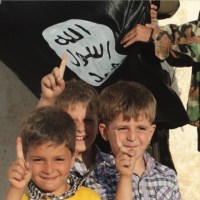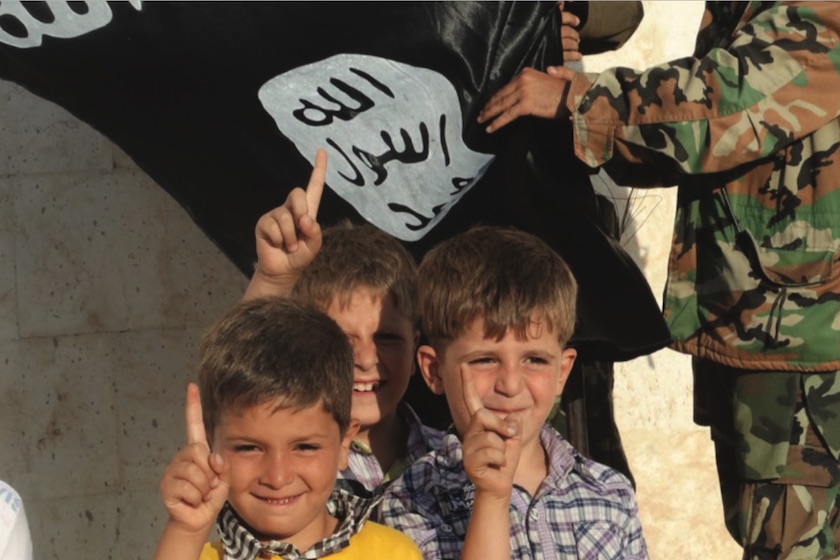She had grown weary of seeing her boys grow up too fast.
A mother of young sons, somewhere in middle America, was moving her family to an “intentional community.” It’s a story I still remember, more than two years after reading it.
The mom was tired of the way the sex-charged American culture was impacting her young boys. She wanted to protect them—to allow them to be kids and not small men. But it seemed that every time they went to the mall, or stood in the tabloid-lined checkout at the grocery store, or in a dozen other seemingly innocuous places, they were surrounded by images of sexualized women, advertising much more than clothes or shampoo.
She was worn down, weary of having to be vigilant every time they went outside. Some days it felt like everywhere they went they were assaulted by influences that didn’t line up with their faith.
So they made the decision to move to a community with others who shared their faith, and where other parents valued modesty and purity as they did.

You might have formed an image of this family in your mind as you read. But this story wasn’t about a Christian family moving into a Christian community. This mother, trying in her own way to do her best for her family, was a devout Muslim, moving to the Middle East—to the so-called caliphate established by ISIS.
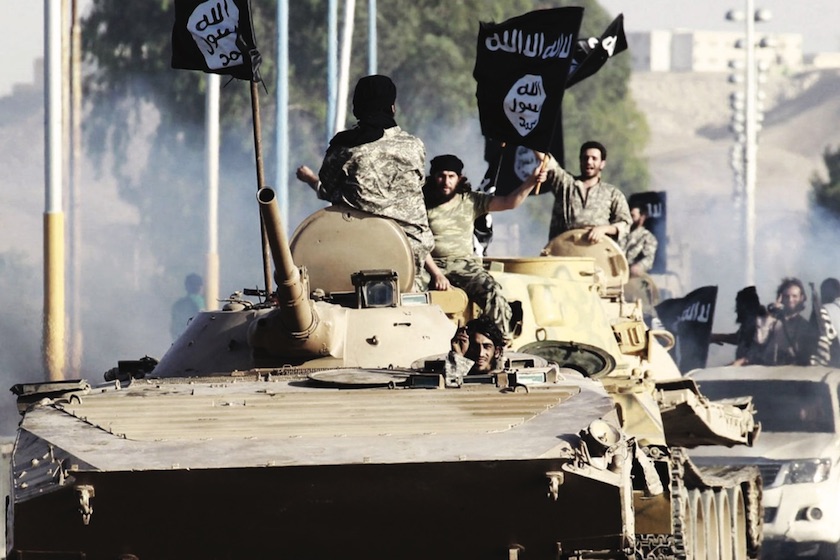
We know the violent nature of ISIS. It’s been well covered by the media for years. We see the videos of graphic executions, often performed by children. We see the “war machine” that makes up their public face.
And we wonder—why would anyone want to join ISIS? We wonder what makes families in North America and Europe, living in peace and security, choose to leave it all behind, migrate to a war zone, and make new lives under the rule of ISIS.
ISIS wasn’t created to be an army. ISIS was created to establish a nation—a caliphate, a “holy” nation in their eyes, “set apart for God.” They are trying to create a place where those who share their beliefs can live.
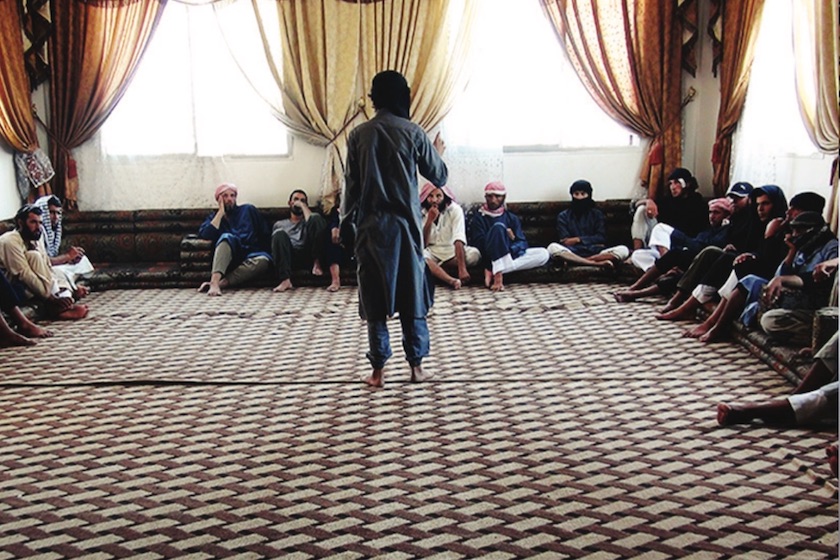
Beyond the war machine, ISIS is, in essence, running a state government. One of the first things they did when they took over territory in Mosul was to repair public services long-neglected by the government. While they recruited fighters to capture and hold territory, they also recruited doctors, civil engineers, and other professionals to keep the ‘state’ running. They fixed broken roads, water systems, and electrical grids. They collected garbage, issued birth and marriage certificates, and traffic tickets. Until recently, ISIS succeeded in maintaining functional communities.
Their caliphate is blood-soaked—that is true. And many fighters were drawn to ISIS’ ranks because of the carnage and power. But many families were drawn in spite of the violence. These families were drawn by the promise of something they have been unable to find anywhere else.
What comfort could possibly be found in the caliphate?
1. A sense of identity
We are all born with a need for respect and belonging. We find our sense of self in the circles of community that surround us; from family, to neighborhood, to country. We find ourselves in those who look like us, care about the things we care about, and practice faith like us. And in finding where we belong, we gain the confidence to interact with the world, to build up and contribute in meaningful ways.
Despite having lived in the United States for generations, many American Muslims find it hard to practice their faith without facing abuse. They are told by strangers to “go home”—even when America is the only home they’ve ever known. The way they dress, the languages they speak, and the mosques they use for worship have made them the targets of unwanted attention.
Counter that with the messages sent from ISIS’ professional media arm which tells the global Islamic community, in slick advertising campaigns, “Come! There is a place for you here!” In calling for those with a variety of skills, they announce that there is a role for everyone.
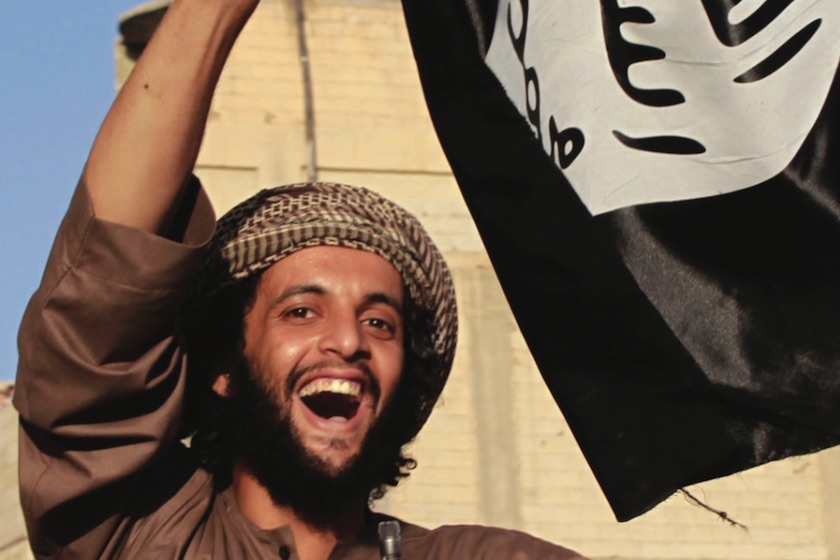
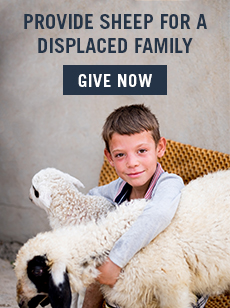
Who wouldn’t be drawn to the idea of being surrounded by others like you, after spending a lifetime in a western country being told you don’t belong, whether because of your ancestry, race or faith? Teenage girls sometimes feel the draw of “sisterhood” within the caliphate, since being observant in western countries can leave them feeling isolated. Young men can feel the draw of respect—of starting out every relationship as an equal and not a suspected terrorist.
2. Protection of values
The west can be a hard place to live for parents who want to preserve their children’s innocence. Many people, not just those attracted to ISIS, long for a simpler time. Some choose to share life with others who value modesty and purity. And for a small portion of those, the caliphate can seem like an appealing place to raise children. Families are prized. From the outside, everyone is perceived to be committed to working for the same value (even though alcohol, drugs, and sexually illicit material are widespread among ISIS soldiers).
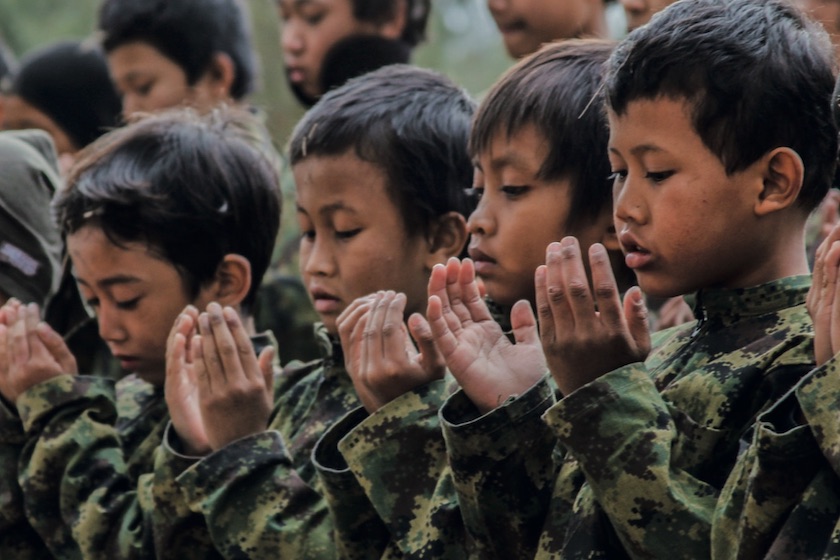
3. Freedom to practice their faith
Many Muslims in western countries find it increasingly difficult to practice their faith. Some municipalities severely restrict construction of new mosques and community centers. Existing mosques are picketed by armed groups, graffitied and vandalized. Young women have been threatened, and their headscarves ripped from their heads by strangers in public places. Men face accusations of being a terrorist for no other reason than their ethnicity. Their very existence can make Muslims a target for those who choose to hate.
At the same time, the internet teems with ISIS promoters extolling the benefits of living in the caliphate, of practicing their faith in a place where it’s easy to be faithful.
4. Solidarity for fellow Muslims in war zones
It is painful to watch your brothers and sisters bombed daily while the world watches and does nothing to stop it. It’s hard to imagine that if it were Christian children being bombed daily for years on end, the world would hang back in the same way.
ISIS has used this disparity as a recruiting tool. For some families, it has been a strong draw.

What is promised by the caliphate is different than reality, of course. It’s far from the utopia so many hoped for—the interpretation of Islam is so narrow, the rules so strict, and the punishments so severe. Much of the so-called caliphate is a blood-soaked war zone.
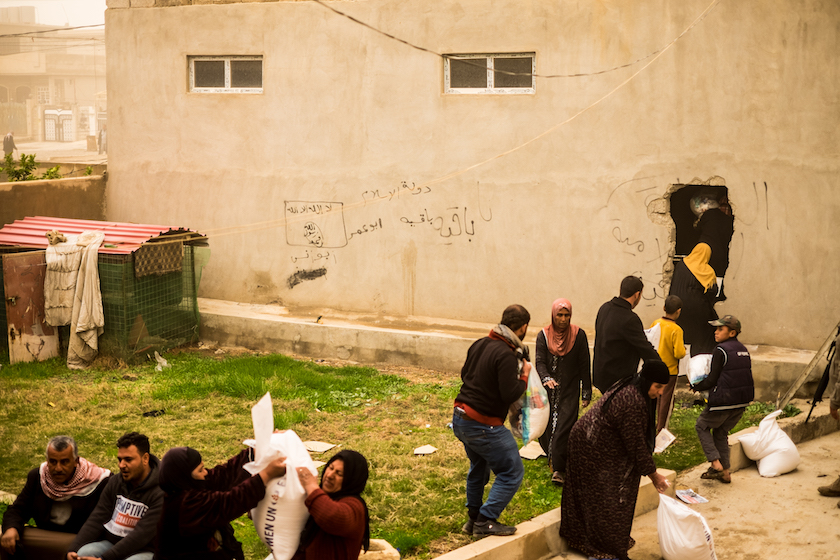
We sometimes think there is nothing we can do to stop ISIS or other radicalized groups, apart from bombing them into oblivion.
That’s simply not true.
Building into our own neighbors and our own neighborhoods, and standing against racism has a direct impact on the caliphate as any army.
We can get informed about what life is like for minorities in our communities, and choose to be present with them.
We can acknowledge their pain, and examine our own assumptions and biases.
We can take a public stand and affirm our neighbors—that they belong in our communities.
We can stand up for them when we see abuses happen.
We can lament with them when the worst happens.
And of course, we can always share our table and a cup of tea.
Perhaps ISIS’ strongest draw was the promise of a place where Muslim young people and families are wanted.
Allowing Muslims to feel valued and wanted—right where they are now, in the western countries where they were born and raised—is the very best antidote to extremism.

